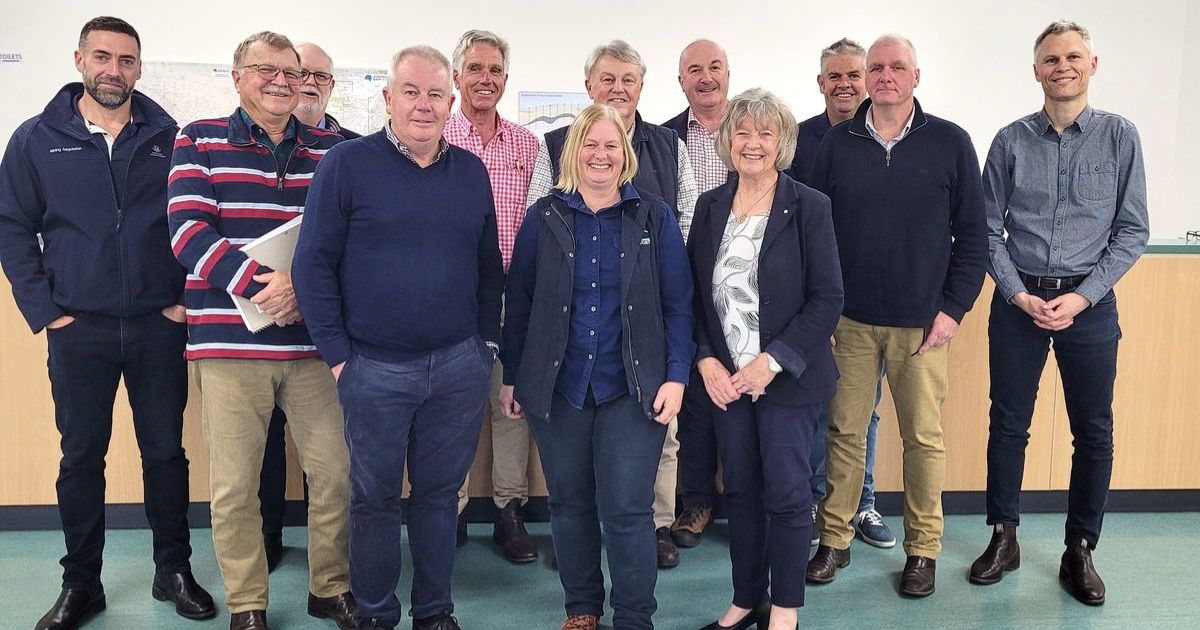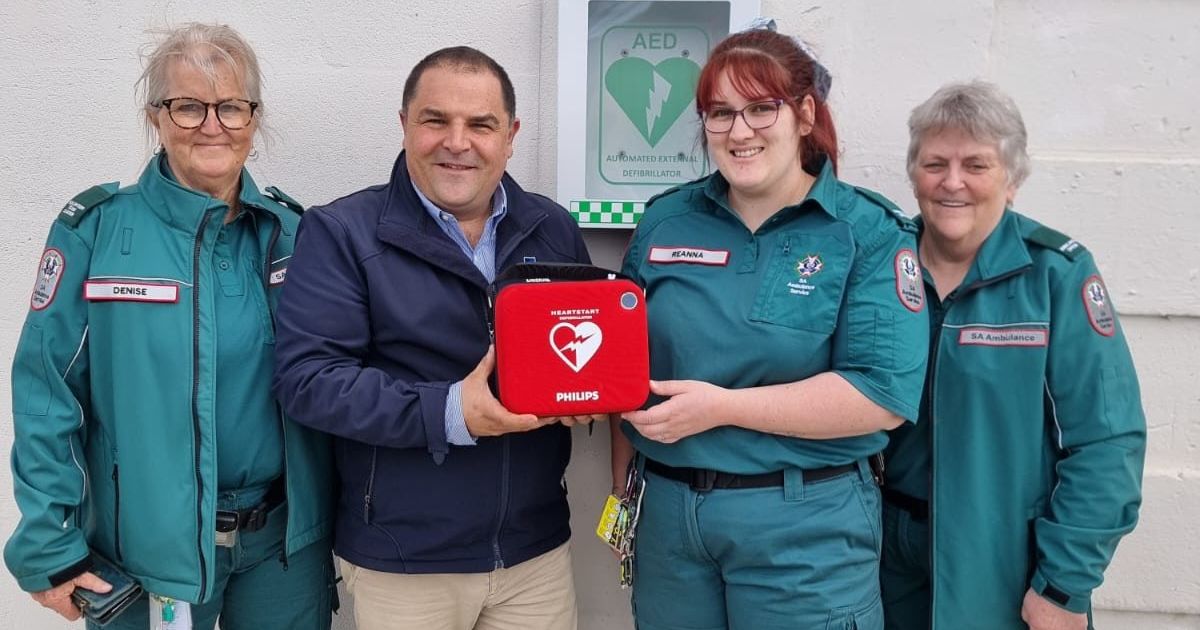Community generosity funds next step in campaign
Palliative care advocate Diane Wright OAM was the headline act at the 2024 Key 2 Kindness Charity Ball and she wound up her inspiring presentation with a simple wish, tapping into the thoughts of the Royal Flying Doctor Service founder Rev. John Flynn.
Her once said ‘if you start something worthwhile, nothing can stop it’ and Diane was hopeful that would be the case for this community’s campaign to establish a purpose-built hospice care facility.
“Hopefully tonight may be a first step towards you establishing your own Community Hospice, as together, with both courage and generosity, we unlock that Key 2 Kindness, and ‘make a difference’ for the people of Mount Gambier and the Limestone Coast region,” she said.
Needless to say the efforts of organisers of the second Key 2 Kindness Charity Ball, the generosity of the 150 people who attended the night and the support from the wider business community ensured another significant step has been taken in achieving that goal.
Key 2 Sale principal and ball organiser Gail Richards was pleased to report that more than $25,000 was raised to continue funding the In Home Hospice Car service, while a further $20,000 was pledged to fund a feasibility study into a stand alone facility in Mount Gambier.
“We live in an incredibly generous and supportive community and thank everyone who supported us with donations, time or who purchased tickets as a night like this cannot be a success without the generosity of others,” Gail said.
The pledges for the feasibility study was especially critical in terms of genuinely pursuing the hospice facility vision.
“This study is a critical step to secure government funding for the project,” Gail said. “Just like a roadmap, a feasibility study will guide us in developing a strong proposal to convince the government of the need for our hospice.
“This is the start of our journey to getting our very own facility and without it, we can’t get this off the ground.”
Gail’s personal experience has been the driving force behind her shining a light on palliative care and the services needed to support patients and their family.
“Terminal illness touches us all,” she said. “Many of us have experienced the loss of a loved one to a life-limiting condition. It’s an incredibly difficult journey for both patients and their families. By raising awareness and advocating for better support and facilities here in Mount Gambier, we’re taking a crucial step forward.
“A local hospice would not only ease the burden on our hospital system, but also provide much-needed respite for exhausted caregivers and families. Supporting them during this challenging time is vital.”
And providing that support has been a long standing focus for Diane Wright, which is why she was targeted as the guest speaker for the 2024 event.
Like so many passionate community advocates, Diane’s want to help was instilled in her at an early age.
“I was raised with a very strong work ethic and also the importance of service to one’s fellow man,” she said. “My parents role-modelled a commitment to community service.”
She watched her parents rolling up their sleeves in such organisations as Apex and Royal Guide Dogs for the Blind and still remembers the mantra her father repeated every morning when she left for school – ‘what difference are you going to make in the world today’.
The other memorable quote from her father was ‘if you see something that needs doing, don’t wait for someone else to do it’ and between her family modelling, her Christian faith and her time in the Girl Guides, community service ended up at the heart of everything she did.
Putting that upbringing into practice in the palliative care space dates back to 1999 when she completed post graduate studies as a clinical family therapist and bereavement counsellor and joined the nursing team of Geelong Hospice Association – a community founded palliative care nursing service that offered outstanding in home end-of-life care to the Geelong community.
“This is where my palliative care and hospice journey began, as the only allied professional working alongside a very fine team of palliative care nurses and volunteers, taking hospice care into the home,” Diane said.
For the next five years she pursued further study and training and spent hours talking to people who were on the palliative care journey and who told me they needed a choice in place of care rather than hospital.
“For the majority of people, home is the first place of choice for end of life care, however only a small percentage of people actually realise their wish of dying at home,” Diane said. “Many factors come into play to negate this choice – foremostly family carers at home become exhausted and burn out and cannot continue to provide that care to their loved one at home. This was often a deep regret for those concerned and also in bereavement loved ones were left with a huge sense of guilt and sadness.
“When I heard this angst day after day for five years I felt I could not ignore this gap in service for hospice care.”
With the words of her father ringing in her ears she started to pursue the short term care, ‘home-like’ end of life care option.
Her research, enormous community support and a stack of hard work saw Anam Cara Geelong opened in 2007 – a stand alone community hospice care facility.
That certainly didn’t put the full stop on her hospice journey as her expertise was accessed by other communities looking to provide quality end-of-life care on their own doorstep.
Living in Colac, her own community then asked her to help guide their campaign and from a public meeting in 2004, it took seven years to open the doors of Anam Cara Colac.
“For the past 40 years my husband and I have lived in Colac and when the Colac community heard about Anam Cara Geelong a few Colac people approached me, asking about a hospice for Colac,” Diane said.
She has now seen the same commitment to quality palliative care in the Mount Gambier community, starting with a meeting with local palliative care advocate Maureen Klintberg and Member for Mount Gambier Troy Bell 18 months ago.
“Community hospices are well established in many parts of the world and as not-for-profit charitable organisations, their sustainability depends on community support and fundraising, government support, philanthropic support, and also volunteer support,” Diane said. “In truth volunteers are the heartbeat of sustainable and good hospice care.
“Establishing a Hospice takes time and enormous community commitment but from 25 years of personal experience in advocating for Community Hospice Care I can tell you that the benefits of local hospice care bring both tangible and intangible results that are worth every ounce of effort.”



















